The Balearic Islands to become a smart tourist destination by expanding IoT sensor networks
Libelium’s technology installed in Palma de Mallorca harbour reveals that ferries cause more air pollution rather than cruises
The environmental report of ESPO (The European Sea Ports Organisation) for 2018 shows that air quality remains the main priority of European ports. Aware of this, the Port Authority of the Balearic Islands has been working hard since 2016 to also know the level of air quality, capacity, alignment with the Environmental Policy of the Port Authority of the Balearic Islands.
In 2017, the Balearic Harbors Authority (APB in Spanish), Mallorcawifi.com, in collaboration with the University of the Balearic Islands (UIB in Spanish), implemented an IoT project based on Libelium sensor platform to control the environmental impact of the vessels in the Port of Mallorca. Authorities were worried about the high level of cruises, ferries, and boats, in order to prevent their negative effects on living conditions in the surrounding areas in such a touristic destination.
The installation of a sensor network focused to monitor the air quality, noise and weather parameters. Everything was aimed at making decisions on the harbour’s environmental behaviour and improving the conditions so that everybody could enjoy a healthier city.
Almost two years data gathering after the installation of the nodes, the Balearic Harbors Authority has reached the first conclusions from the data captured by the network of nodes. In July 2018, it was brought to light by researchers at the UIB that cruises were not the first cause of pollution in the area, but passengers’ and commercial ferries.
“We wanted to identify the quality of the air in the harbour in a more concrete and precise way due to the social sensitivity of this matter,” highlights Jorge Martín, Quality Manager of the Balearic Harbors Authority.
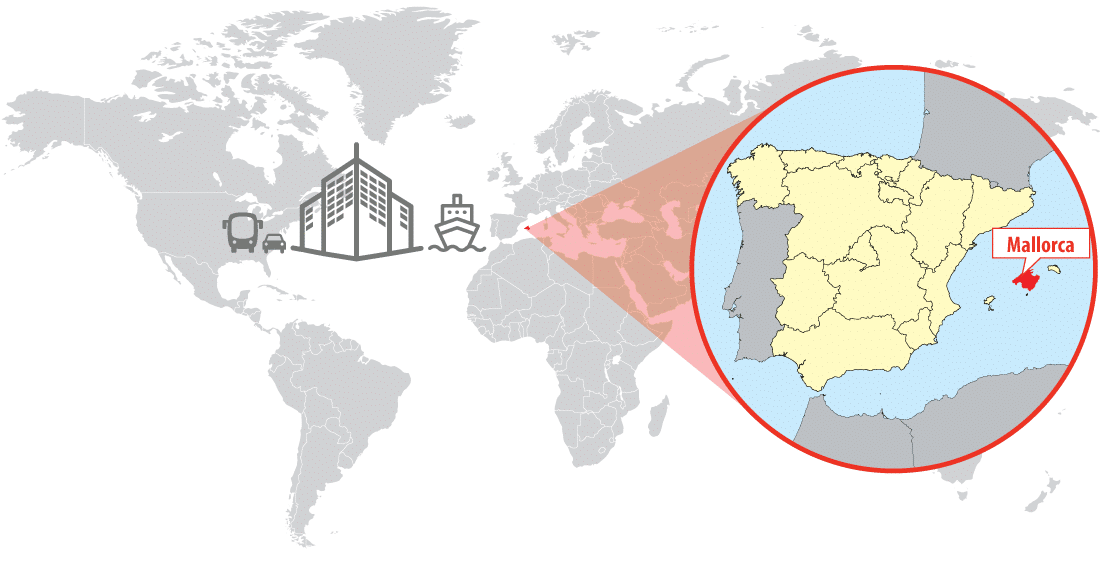
Map of Mallorca
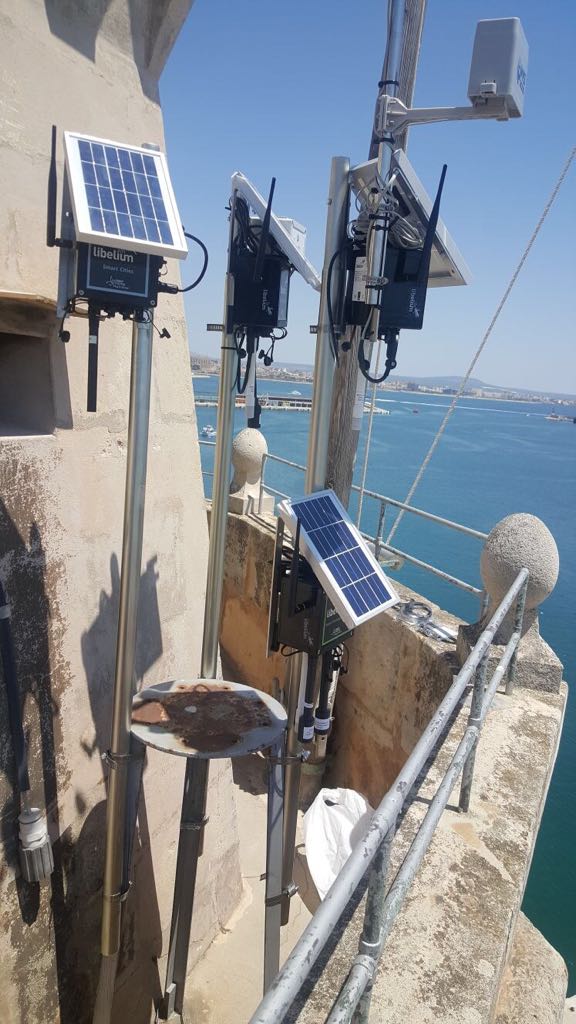
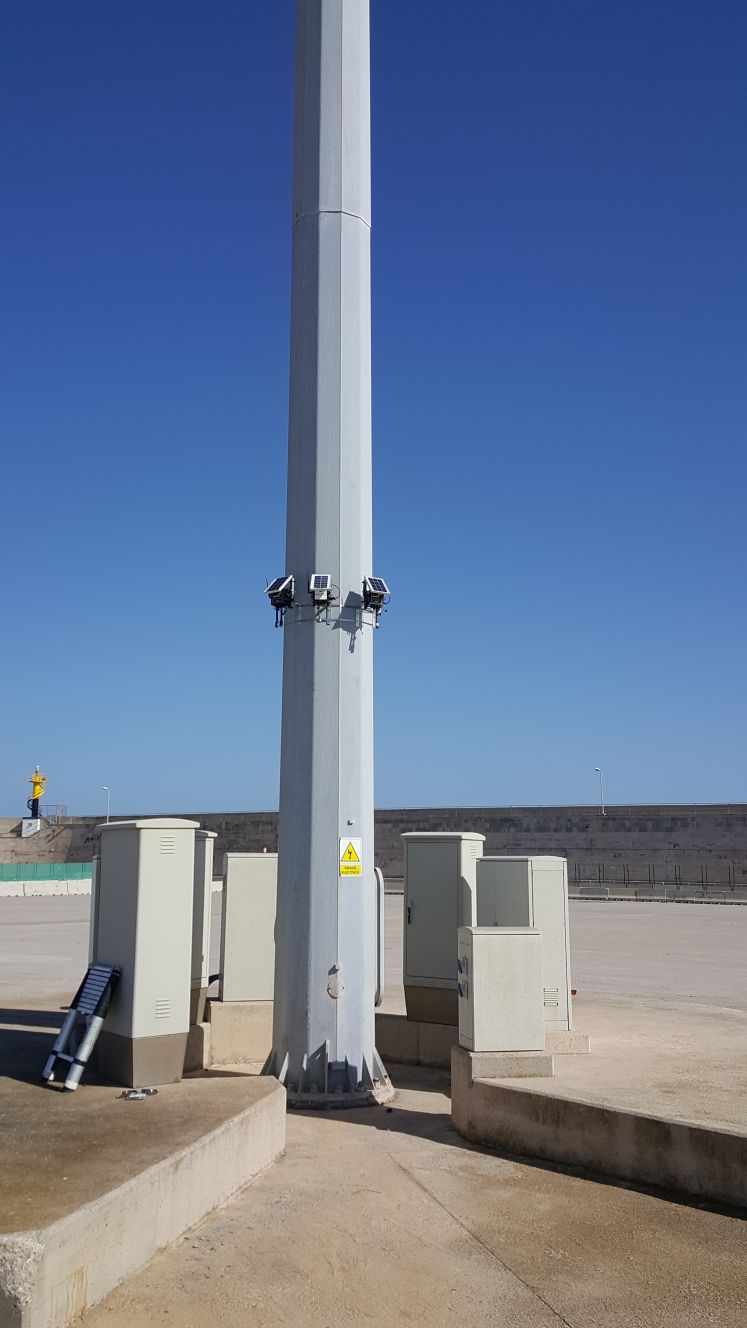
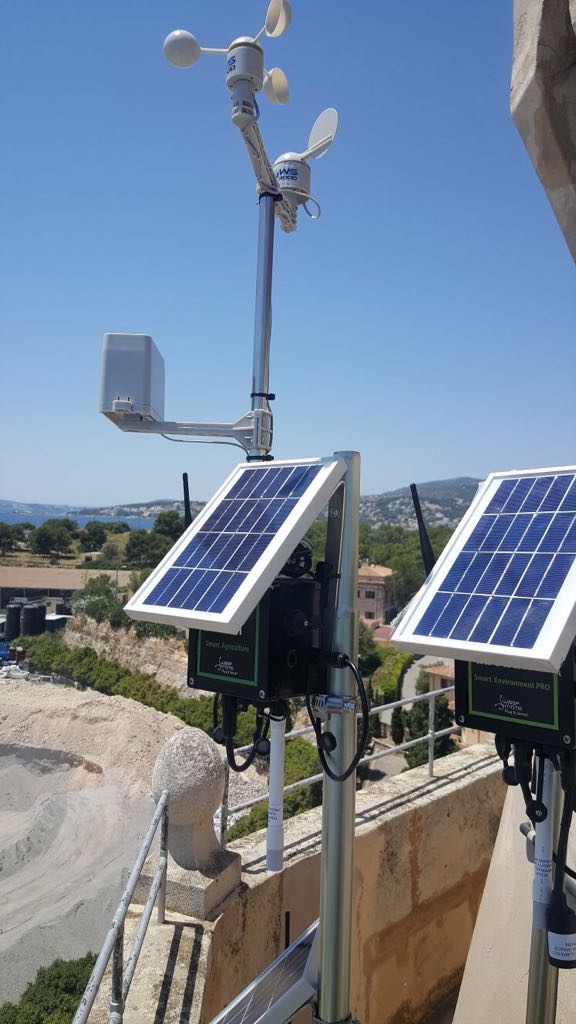
Waspmote Plug & Sense! Sensor Platforms installed in Mallorca
The measuring stations’ control levels of carbon monoxide (CO), Particle Matter (PM), ozone (O3), carbon dioxide (CO2), sulfur dioxide and noise every ten minutes. The authorities confirm that higher levels are reached in the morning, between 6:00 and 11:00 AM.
After the results of the study were published, the authorities of the port showed its interest to implement new policies in order to diminish the pollution and its negative impacts. In the future, the port will offer free power to vessels, which will be asked to switch off their motors while berthing to diminish emissions.
This project is planned to be replicated in 2019 in the rest of ports of the archipelago (Alcudia, Ibiza, Mahón and La Savina).
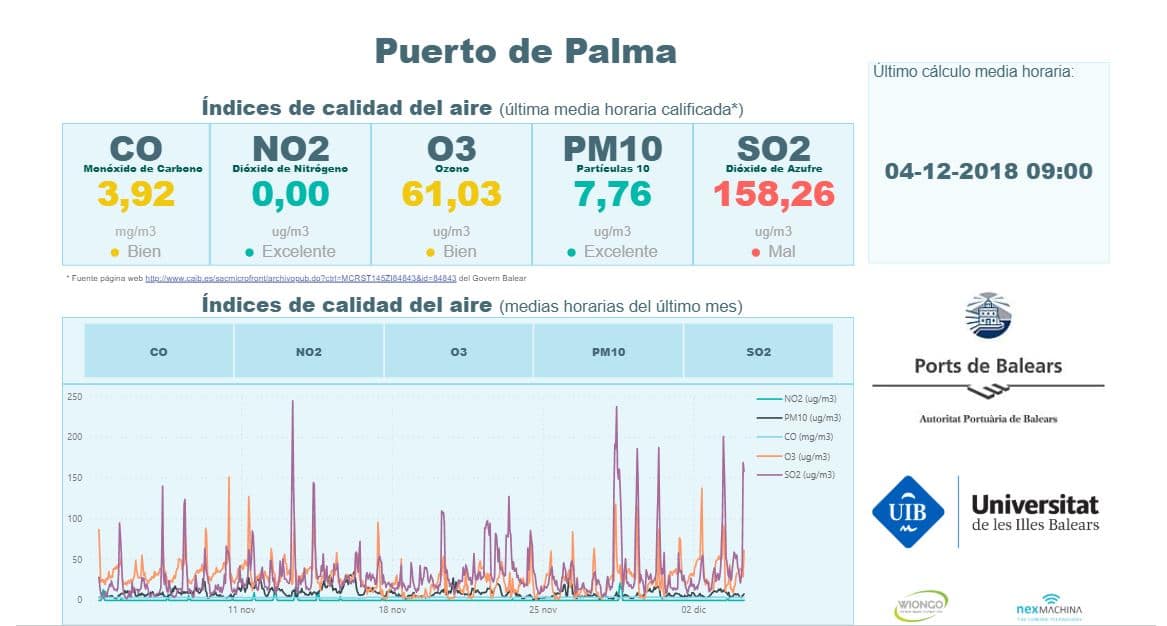
Web dashboard of the project
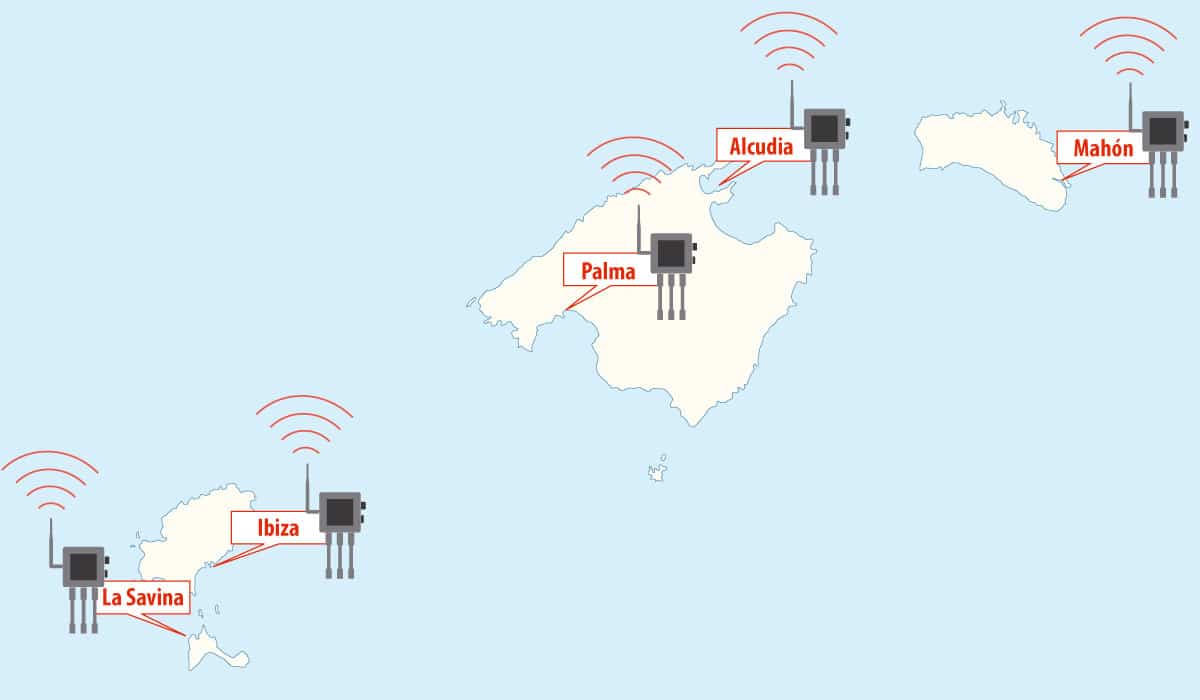
Location of the Balearic ports where the project will be replicated
More info:
- Read more about Libelium sensor product lines in the Waspmote, Waspmote Plug & Sense! Sensor Platform and Meshlium Gateway websites.
- For technical details on Smart Environment PRO/Gases PRO Board Guide: Gases PRO v30 Board Guide.
- For technical details on Smart Cities PRO sensors: Smart Cities PRO Board Guide.
- Read more about Libelium sensor product lines in the Waspmote, Waspmote Plug & Sense! Sensor Platform and Meshlium Gateway websites.
- Libelium’s IoT sensors platform helps to control environmental impact on Palma de Mallorca’s harbor to become a smart tourist destination
- Reducing Logistics’ environmental impact by air quality monitoring in the Baltic Sea Port of Gdansk, Poland
- Libelium releases new IoT Smart Cities Platform enhancing accuracy in noise level and air quality pollution sensors.
- New Calibrated Air Quality Sensors for Smart Cities.
- New Particle Matter – Dust Sensor (PM1 / PM2.5 / PM10).
Watch how Libelium is powering the IoT Revolution
References:
- Article from Libelium.com
- Mallorcawifi.com: mallorcawifi.com
- Balearic Ports Authority: portsdebalears.com
- University of the Balearic Islands: uib.es

